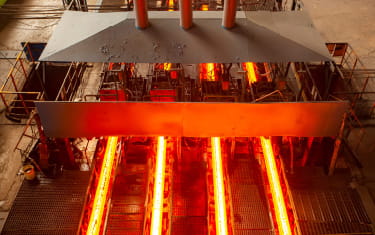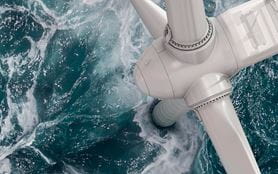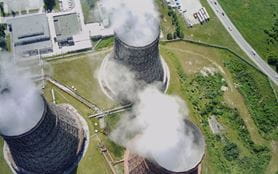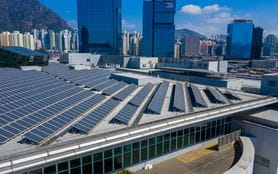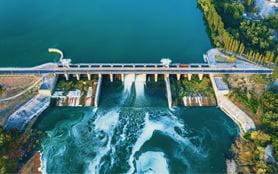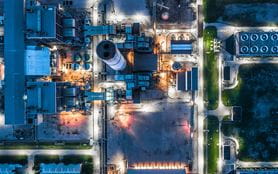Hydrogen is critical to Net Zero - but needs government support
Related people
Headlines in this article
Hydrogen will be key to decarbonising industries such as steel. But to build the supply chains required to develop economies of scale, state intervention will be needed.
What role will hydrogen play in delivering Net Zero? Some believe it will transform everything from power generation to mass transit thanks to its flexibility as a carrier of energy.
For others, hydrogen’s high cost of production, relative inefficiency as a feedstock (compared to, say, natural gas) and storage and transportation challenges make it a distraction from more workable solutions.
In reality, hydrogen’s current value lies somewhere in between – as a way to decarbonise a variety of hard-to-abate industrial processes (such as steel production), and as a source of green power for countries with limited renewable capacity.
Investment required to create economies of scale
Massive investment in infrastructure and innovation is required to create the economies of scale that will reduce costs to the point where hydrogen can replace other forms of energy. For that to happen, government intervention is required.
Efforts to support more private investment in hydrogen production have taken various forms, from direct state funding towards construction projects to revenue support measures that make infrastructure developments more readily bankable.
Efforts to support more private investment in hydrogen have included direct state funding of capex projects and revenue support measures that make infrastructure developments bankable.
The EU and the UK are looking to deploy the sort of feed-in tariffs and contracts for difference that have boosted wind and solar generation, while President Biden’s Inflation Reduction Act – which offers tax breaks to companies that provide clean power – is expected to accelerate progress in the U.S.
Japan is betting on green hydrogen – which requires renewable energy to produce – as part of its Net Zero transition. However, its mountainous terrain, deep waters and position in the path of typhoons (which makes floating wind farms unviable), mean it has limited capacity to produce enough green power to meet its existing needs.
Japanese research reveals future use cases
In response, Japan intends to establish itself as a demand centre, and has conducted research into the price at which hydrogen becomes a potential substitute for fossil fuels in different settings.
This work has identified heavy goods vehicles and shipping as the next applications that are within reach, potentially providing a pathway for other countries to follow.
Japan’s plan has found a willing ally in Australia, which has massive potential as a green hydrogen producer. To boost its hydrogen supply chain, the Australian government is aiming to be a leader in regulatory certainty.
Steps it has taken to date include implementing a scheme to certify green hydrogen, amending regulation to allow hydrogen into existing gas networks, and reviewing its entire regulatory framework to identify what rules need to change to facilitate hydrogen production and transport.
For now, hydrogen can abate some of our hardest-to-reach emissions. We are fortunate to be helping efforts to build an international supply chain, and when they succeed, hydrogen will finally be playing its part as a zero-carbon solution to our global energy needs.

